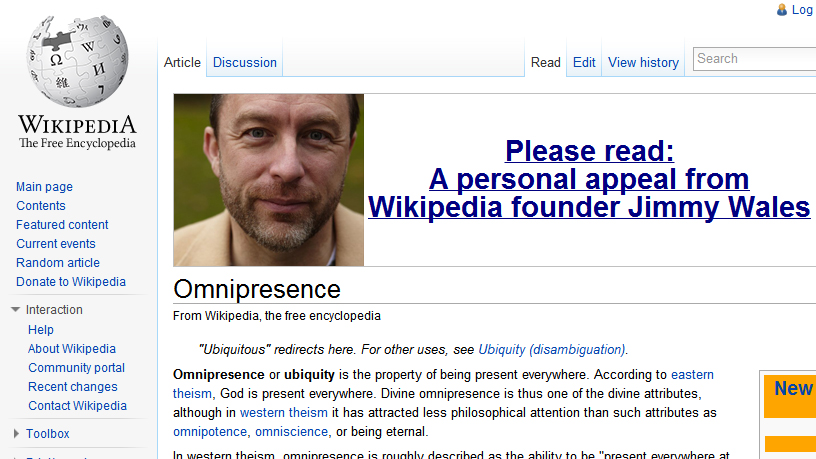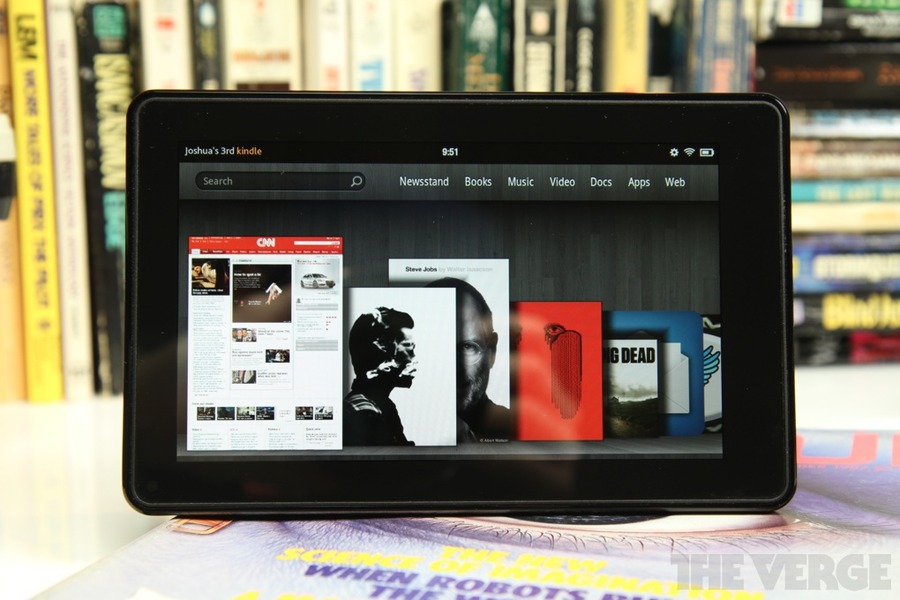500-year-old social media revolution
The Economist on How Luther went viral:
After decades of simmering discontent a new form of media gives opponents of an authoritarian regime a way to express their views, register their solidarity and co-ordinate their actions. The protesters’ message spreads virally through social networks, making it impossible to suppress and highlighting the extent of public support for revolution. The combination of improved publishing technology and social networks is a catalyst for social change where previous efforts had failed.
A familiar sounding tale — except it happened 500 years ago.
Luther’s enemies likened the spread of his ideas to a sickness. The papal bull threatening Luther with excommunication in 1520 said its aim was “to cut off the advance of this plague and cancerous disease so it will not spread any further”. The Edict of Worms in 1521 warned that the spread of Luther’s message had to be prevented, otherwise “the whole German nation, and later all other nations, will be infected by this same disorder.”
Yes, Luther’s ideas were “going viral”.
Modern society tends to regard itself as somehow better than previous ones, and technological advance reinforces that sense of superiority. But history teaches us that there is nothing new under the sun. Robert Darnton, an historian at Harvard University, who has studied information-sharing networks in pre-revolutionary France, argues that “the marvels of communication technology in the present have produced a false consciousness about the past—even a sense that communication has no history, or had nothing of importance to consider before the days of television and the internet.”
“There is nothing new under the sun.” (Ecclesiastes 1:9) Seems like the main improvement is in the speed of transmission. Certainly something worth thinking about in this age of seemingly unprecedented innovation.
A true Christmas feast
The verse from the sermon at my church’s Christmas Eve service:
“Come, everyone who thirsts,
come to the waters;
and he who has no money,
come, buy and eat!
Come, buy wine and milk
without money and without price.Why do you spend your money for that which is not bread,
and your labor for that which does not satisfy?
Listen diligently to me, and eat what is good,
and delight yourselves in rich food.Incline your ear, and come to me;
hear, that your soul may live;
and I will make with you an everlasting covenant,
my steadfast, sure love for David.Behold, I made him a witness to the peoples,
a leader and commander for the peoples.Behold, you shall call a nation that you do not know,
and a nation that did not know you shall run to you,
because of the LORD your God, and of the Holy One of Israel,
for he has glorified you.“Seek the LORD while he may be found;
call upon him while he is near;— Isaiah 55:1-6
Truly a Christmas feast for all of us to share in.
Play by their rules
Well, I guess that’s the end of my social media experiment. Facebook shut down my German Football Team fan page and merged it with the official Die Nationalmannschaft page (which is in German, that’s why I created one in English) because it wasn’t run by an official representative. It’s a bit painful because the page had accumulated >80,000 fans over the past few years and I have been regularly posting news and updates on the page, feeling a certain responsibility to keeping all these fans updated (as silly as that sounds).
Obviously there is some demand of an English-language fan page for the German team but if the German football association doesn’t want to put an effort towards that, there’s nothing anyone can do about it. It was fun while it lasted but we all have to play by Facebook’s rules…
Why is Android laggy?
An interesting technical analysis by Andrew Munn on Why is Android laggy, while iOS, Windows Phone 7, QNX, and WebOS are fluid?
Android UI will never be completely smooth because of the design constraints I discussed at the beginning:
– UI rendering occurs on the main thread of an app
– UI rendering has normal priorityEven with a Galaxy Nexus, or the quad-core EeePad Transformer Prime, there is no way to guarantee a smooth frame rate if these two design constraints remain true. It’s telling that it takes the power of a Galaxy Nexus to approach the smoothness of a three year old iPhone. So why did the Android team design the rendering framework like this?
Work on Android started before the release of the iPhone, and at the time Android was designed to be a competitor to the Blackberry. The original Android prototype wasn’t a touch screen device. Android’s rendering trade-offs make sense for a keyboard and trackball device. When the iPhone came out, the Android team rushed to release a competitor product, but unfortunately it was too late to rewrite the UI framework.
This is the same reason why Windows Mobile 6.5, Blackberry OS, and Symbian have terrible touch screen performance. Like Android, they were not designed to prioritise UI rendering. Since the iPhone’s release, RIM, Microsoft, and Nokia have abandoned their mobile OS’s and started from scratch. Android is the only mobile OS left that existed pre-iPhone.
Android makes so many changes from version to version that apps have to be rewritten anyway. Might as well bite the bullet and rewrite the rendering framework sooner rather than later.
Irrevocably dirty
Charmian Gooch, a Founding Director of Global Witness, said: “Nearly nine years after the Kimberley Process was launched, the sad truth is that most consumers still cannot be sure where their diamonds come from, nor whether they are financing armed violence or abusive regimes.”
[…]
Global Witness’ departure seals what has been apparent for some time: that, as an industry, the diamond business can’t help but be irrevocably dirty.
Don’t buy diamonds.
That $200 price tag
David Pogue reviewing the Kindle Fire:
Most problematic, though, the Fire does not have anything like the polish or speed of an iPad. You feel that $200 price tag with every swipe of your finger. Animations are sluggish and jerky — even the page turns that you’d think would be the pride of the Kindle team. Taps sometimes don’t register. There are no progress or “wait” indicators, so you frequently don’t know if the machine has even registered your touch commands. The momentum of the animations hasn’t been calculated right, so the whole thing feels ornery.
iPad killer, it is not.
Well, at least if you get so frustrated with the Fire that you throw it against the wall, it’s only $200 that goes up in smoke.
Point and shoot
Gadi Amit, founder of the design firm which worked on the revolutionary design of the Lytro camera:
There’s a moment that happens during the best projects, when 10 people in a room realize that there’s something so pure about a solution that it works.
Point and shoot. Can’t get any purer than that.
Moonwalking with Einstein
Just finished reading a highly-entertaining but yet very informative book about a journalist’s transformation from curious bystander into winner of the United States Memory Championship.
The narrative nicely frames an exploration of the very complex topic of our memories and what makes us remember — and forget — things.
In the end, I think this quote best sums up what the book is about and why our memories are still so important in this age of externalizing our memories:
How we perceive the world and how we act in it are products of how and what we remember. We’re all just a bundle of habits shaped by our memories. And to the extent that we control our lives, we do so by gradually altering those habits, which is to say the networks of our memory. No lasting joke, invention, insight, or work of art was ever produced by an external memory. Not yet, at least. Our ability to find humor in the world, to make connections between previously unconnected notions, to create new ideas, to share in a common culture: All these essentially human acts depend on memory. Now more than ever, as the role of memory in our culture erodes at a faster pace than ever before, we need to cultivate our ability to remember. Our memories make us who we are. They are the seat of our values and source of our character.
While I don’t necessarily agree that “we’re all just a bundle of habits shaped by our memories”, I believe that our memories certainly play a major part in defining who we are, our values and our character.
And that’s where I’m starting to see the importance of memorizing scripture and the way it can shape our lives as Christians.
Not a feeble-minded copycat
David Pogue on Microsoft’s latest update to their mobile operating system:
“Windows Phone 7.5 is gorgeous, classy, satisfying, fast and coherent. The design is intelligent, clean and uncluttered.”
“Most impressively, Windows Phone is not a feeble-minded copycat. Microsoft came up with completely fresh metaphors that generally steer clear of the iPhone/Android design.”
“Microsoft’s work here deserves attention, praise and sales. Maybe it’s not quite as mature as the iPhone or Android. But the world is a more interesting place with Windows Phone in it.”
When was the last time you could say that about a Microsoft product? Things have certainly changed.



